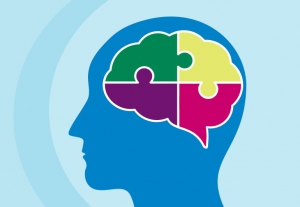Sobriety is a lifelong commitment that goes beyond abstaining from substances; it's about rebuilding mental, emotional, and physical health. While traditional in-person treatment programs have helped countless people start their recovery, online therapy is increasingly playing a key role in helping individuals maintain sobriety and navigate the challenges of long-term recovery.
Bridging the Gap After Treatment
The period following inpatient or intensive outpatient treatment can be one of the most vulnerable times for someone in recovery. In-person aftercare may be limited by location, transportation, or scheduling conflicts. Online therapy bridges this gap, offering consistent, flexible access to professional support during this critical transition.
By connecting with licensed counselors and recovery specialists remotely, individuals can address triggers, stress, and setbacks in real time, without the delays or obstacles that can arise from waiting for the next in-person appointment. This continuity of care is vital, as research shows that consistent engagement with support services greatly improves long-term sobriety outcomes.
Online therapy also makes it easier to adjust the frequency of sessions as needs change. For instance, someone newly discharged from a program might attend weekly or twice-weekly sessions, while someone in stable long-term recovery might scale back to monthly check-ins.
Addressing Triggers Before They Escalate
One of the most powerful benefits of online therapy for sobriety is the ability to respond quickly when challenges arise. Triggers, whether emotional, social, or environmental, can surface unexpectedly. With online therapy, individuals can schedule same-day or next-day sessions to process these moments, preventing them from spiraling into relapse.
Triggers can include anything from encountering old friends who still use substances to high-stress situations at work, to anniversaries of traumatic events. By working through these triggers promptly, clients can reinforce healthy coping mechanisms.
Many platforms also offer text-based check-ins or app-based tools, so support is available even between full sessions. These small, frequent touchpoints can be a lifeline during high-risk periods, helping people practice their relapse prevention skills in real-world situations.
Privacy and Reducing Stigma
The stigma surrounding addiction recovery can discourage some people from seeking ongoing help. Online therapy offers a discreet alternative, allowing individuals to access care from the comfort and privacy of their homes. This privacy can be vital for those in small communities where anonymity is harder to maintain.
Being able to speak openly without fear of judgment helps build trust between the client and therapist, which is essential for lasting sobriety. Over time, this trust fosters honest conversations about setbacks, cravings, and fears, enabling more effective treatment.
Online therapy also reduces the social anxiety some may feel about attending in-person groups or clinics. For people who might otherwise skip care due to discomfort, this level of privacy can be the deciding factor in staying engaged with recovery support.
Building a Relapse Prevention Plan
Relapse prevention is an ongoing process that requires consistent monitoring and adjustment. Through online mental health support, individuals can collaborate with therapists to create a personalized plan that includes:
- Identifying high-risk situations;
- Strengthening coping mechanisms;
- Scheduling regular check-ins for accountability;
- Using online tools to track mood and stress levels;
- Practicing refusal skills in role-play scenarios;
- Building a crisis response plan.
Because online therapy removes geographic limitations, individuals can choose therapists who specialize in substance use recovery and relapse prevention, even if they live far away. This access to specialized expertise can make relapse prevention strategies more effective and tailored to the individual's unique challenges.
Supporting Co-Occurring Mental Health Needs
Sobriety often involves managing co-occurring conditions like depression, anxiety, or PTSD. Left unaddressed, these mental health challenges can undermine recovery efforts. Online therapy enables individuals to work with specialists in both addiction and mental health, ensuring a more holistic approach to healing.
For those in dual-diagnosis recovery programs, this integrated care can be critical to maintaining both mental health stability and sobriety. Therapists can coordinate with other care providers, such as psychiatrists or primary care doctors, to ensure the person's treatment plan is cohesive and supportive of long-term goals.
Encouraging Accountability and Connection
Connection is a key part of recovery. Online therapy platforms often incorporate group sessions, peer support forums, and progress tracking, helping individuals feel less isolated in their sobriety journey. This sense of community can reinforce accountability and remind participants that they're not alone in their challenges.
Accountability can also come from regular progress reviews with a therapist, setting goals, and celebrating milestones. These milestones, whether it's 30 days, 6 months, or 5 years sober, serve as powerful reminders of progress and resilience.
For people balancing work, family, and recovery, these flexible formats make it easier to stay engaged without sacrificing other responsibilities. Group sessions, in particular, offer the opportunity to learn from others' experiences and gain insight into new coping strategies.
Integrating Lifestyle and Wellness Support
Sobriety is not just about avoiding substances; it's about creating a life worth staying sober for. Online therapy can help clients set and pursue goals related to employment, education, relationships, and physical health. Many therapists incorporate wellness coaching, stress management techniques, and even mindfulness practices into recovery plans.
Clients may also receive guidance on nutrition, exercise, and sleep habits, all of which play a role in stabilizing mood and reducing relapse risk. Having these tools accessible in an online format means individuals can integrate them into daily life more seamlessly.
The Future of Sobriety Support
As technology evolves, the role of online therapy in addiction recovery will continue to expand. Virtual reality simulations could one day help clients practice refusal skills in realistic environments, while AI-assisted therapy tools might provide immediate feedback and coping strategies in moments of stress.
Advanced telehealth platforms may also integrate biometric tracking, enabling therapists to monitor signs of stress or relapse risk in real time. This proactive approach could help prevent setbacks before they occur.
While online therapy is not a replacement for all forms of in-person treatment, it is a powerful complement, especially for maintaining recovery over the long term. By offering timely access, privacy, specialized expertise, and connection, online therapy is helping countless people protect their sobriety and build healthier, more fulfilling lives.
If you're navigating life after treatment, exploring online mental health support could be the key to maintaining your sobriety and thriving in recovery.






